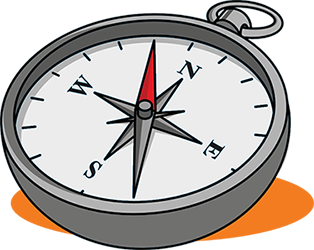Hiring is more challenging than ever, especially in support. 49% of millennials say they’ll leave their current job within the next 2 years!
That means the pressure is ON and you only have one short interview to make the right call.
Give yourself the best chance to identify top-notch support reps in every interview by changing up your approach. Dump the “mind game” questions about favorite colors, the terrifying “identify your personal weakness” approach and reconsider the fun-but-useless “if you had a superpower, what would it be” question.
Instead, focus on questions that help you understand how a candidate will actually function both in their day-to-day work and their broader career as a happy, engaged team member with your awesome company. Here are the interview questions you REALLY need to be asking to identify your next rockstar customer support agent!

1. What’s An Example Of Memorable Customer Service From Your Own Experience As A Consumer?
As a hiring manager, you want your next support rep to already have a good idea of what great customer service looks like.
Most people are ready to share any number of personal examples of poor customer service. Nearly 73% of customers share negative experiences, often with multiple people. But it’s easy to pick apart bad service.
Your goal is to provide the kind of effortless service experience that delights customers and builds loyalty - and that is only measured by the customer, not the agent.
What to look for:
Truly great service experiences stick in the memory because they make you feel unique, appreciated, and heard. In the support rep’s answer, look for elements that touch on those points. When they can describe a support experience that really helped them feel that they were valued by that company, you’ll also get a glimpse of the kind of experience they will aim to deliver as a member of your team.
2. Describe The Most Effective Manager You’ve Worked With - What Made Them So Impactful?
It goes without saying that as a manager, you’re looking for a friendly and collaborative relationship with everyone on your team!
But keep in mind, you’re not looking for their favorite manager. Sure, many people have had a manager they loved who became a friend or mentor - but that doesn’t always lead to a great working relationship.
People often do their best work under managers who simply provide them with the right mix of structure, guidance, feedback, and flexibility to do their jobs effectively, without developing an intensely personal bond along the way.
What to look for:
The type of manager a candidate deems "most effective" can say a lot about the candidate's working style. Those who describe a thorough manager (provided clear playbooks for all scenarios, checked in frequently, created detailed guidelines) are likely to excel in highly focused workflows. Those who recall a favorite manager who valued creativity and flexibility (provided documentation, let them explore, and checked in as-needed) may be more likely to flourish in workflows that require creativity and independence.
3. Describe A Time You Were Angry - What Happened, And How Did You Resolve It?
Some hiring managers will be taken aback by this question - you’re not looking to hire people who will lose their temper and fly off the handle when things get stressful!
But it’s human to become angry when someone else begins yelling at you, whether that’s at work or in a personal situation.
In fact, if an applicant tells you “I really don’t get mad” or offers a brief response about a time they were a tiny bit irritated, they’re ducking the question.
As you know, customer support can be an incredibly stressful job at times.
Seasonal spikes, delivery issues, product changes, and many other factors often result in contacts from customers who are furious and looking to vent at the first person who responds to them.

What to look for:
The most helpful answers will showcase that the applicant has a high EQ (emotional intelligence quotient) and pauses to process tense situations. It’s fair for an experienced support agent to recall a ticket where the customer was so rude, they decided to simply escalate the case to a manager. That’s the smart move - the agent realizes the case is just going downhill, recognizes that someone else may have a cooler head for this particular issue, and places the matter in a manager’s hands for speedy resolution.
4. What Did You Do To Prepare For An Interview With Our Company?
Let’s get the obvious answer out of the way first - "the applicant is looking for a job, your company is hiring, so... end of story!"
If a candidate stops with this answer, you may want to just move on then-and-there.
What to look for:
The strongest answers will show that a candidate took some time to thoroughly research your company. They’ve spent time on the website, learned about your product, reviewed social media posts, and explored your core values. They’re already seeing themselves as valued team members - and their excitement in the interview proves this.
5. What Helps You Organize Your Day?
With this question, be prepared for a wide range of answers, from people who identify personal habits (journaling, meditation, exercise) that help them clear their minds and prepare to focus on the day, down to practical, tactics-focused responses (creating a to-do-list, reviewing and categorizing personal email in-boxes) and even preferred tools (bullet journals, mobile apps).

What to look for:
You’re not looking for a “correct” answer - and it's unlikely that an applicant will tell you they’re disorganized! But their answers will certainly tell you a lot about their working style, and how you can help them acclimate to your team's processes when they start. For example, support reps who look for a team stand-up meeting to receive assignments before tackling the queues may need help adapting to team where reps typically plan their own day.
Interview questions aren’t just about finding the best candidates - they also help you better understand your new hire.
Setting them up for success requires understanding how they work best, and what their experiences have been in the past.
6. How Would You Respond To A Common Support Scenario?
There is a growing body of support for the “work sample” method of interviewing, where candidates are asked to complete a typical task in order to demonstrate what they can actually do.
To be fair, this is less of a question and more of a “mini-assessment.”
But asking candidates to review and respond to a typical support scenario just might be the most important part of the entire interview process, as it allows candidates to show what they can really accomplish once they’re on the job.
How to proceed:
The key is to keep the task focused and uncomplicated, requiring little or no preparation before the candidate begins.
- Use a fictionalized scenario, something generic but common enough that it replicates actual situations they will encounter on your team.
- Align the scenario with the role you're hiring for and make sure the time allowed fits the scenario.
- Present candidates with a common support scenario and ask them to draft a response.
For example, Tier One support reps should be able to complete a basic sample ticket about product information in 15-20 minutes, while samples for technical support positions should be structured to highlight technical knowledge and allow a bit more time for completion.
7. What Role Would You Like To Explore Next?
This is a much more telling version of the tired old “where do you see yourself in five years" question - a question that sets candidates up to offer a vague answer about vertical career advancement that will likely not be possible with your company.

By asking candidates to share an idea for a role (not a “job” or “position”), you’re inviting a collaborative and open-ended response that doesn’t leave them frantically guessing how to give you an answer that shows they’re ambitious (but not TOO ambitious), or that they don’t understand promotion processes at your company (because how can they?).
There’s no right or wrong answer here. Use this question to gauge a candidate's ideal career direction and goals.
8. What Questions Do You Have For Us?
As a hiring manager, one of the most puzzling moments in any interview comes when applicants don’t have their own questions prepared.
Sure - there’s the expected list of questions about compensation, benefits, and other tactical concerns (although your recruiters should have thoroughly prepared them on these topics already).

But this is also where very excited and enthusiastic candidates have the opportunity to learn more about you and your company.
In team interviews, this is a chance for applicants to learn more about daily workflows and whether your company really is as great to work for as it seems (of course it is!).
It’s also when they get to ask you, as hiring manager, what makes someone successful at your company, and what advice you have for new team members who are just getting started.
Remember, candidates are also deciding if they want to work for your company - so make sure they have the chance to learn how amazing you and your team are!
Conclusion
A great customer support team is made up of great people - unique, talented, and curious support reps who are enthusiastic about delivering memorable support experiences each and every day.
When it’s time to hire your next support rep, toss out the old question list and instead focus on questions that will help you understand how candidates think, feel, and work - you’ll be on your way to finding the next amazing rep to join your team in no time!
For any more tips on how to manage your support team more efficiently, this article may interest you.
Images courtesy of Pinclipart.com & WebStockReview

